The recent backstep in conducting the pivotal National Eligibility cum Entrance Test for Postgraduates (NEET-PG) has cascaded into a full-blown political spat, eliciting varying degrees of outrage and consternation. This NEET-PG postponement has ensnared the nation’s attention, rallying students and politicians alike to voice their uncertainties and reshuffle their agendas. With the stakes high for medical graduates seeking to cement their career trajectories, the delay has inflated the pressure-cooker environment of competitive exams, and magnified a national controversy at the juncture of education and governance. Momentous scrutiny is now directed toward the NEET PG exam delay and its ramifications on all fronts.
Amidst a torrent of student appeals and critical examinations of the circumstances, this episode is unearthing deep-seated issues within the examination’s infrastructure and its influence on the nation’s healthcare system roadmap. As the political uproar simmers, with accusations being traded across the spectrum, the integrity of educational examinations becomes an emblematic flashpoint in contemporary national discourse.
Key Takeaways
- NEET-PG postponement has stirred widespread distress among medical students and aspirants.
- Political uproar ensues as parties dissect the implications of the NEET PG exam delay.
- A national controversy surrounds the governance of educational institutions and examination integrity.
- The timely administration of NEET-PG is crucial for the career advancement of thousands of aspirants.
- This delay casts light on the broader political and systemic challenges in managing nation-wide competitive exams.
Understanding the NEET-PG Exam and Its Significance
The NEET-PG exam is a linchpin in India’s medical education infrastructure, serving as a critical step for graduates who aspire to enter specialty fields of medicine. Through this examination, medical students can progress to prestigious residency programs, which are essential for those looking to further their career in medicine. The stakes are high, as each year thousands of candidates from across the country vie for a limited number of postgraduate seats available in various medical colleges. newsreporto.com
Given the NEET PG significance, it sets a benchmark for knowledge and skills that are required to sustain high standards in healthcare services. For many medical graduates, scoring well in this exam is pivotal, as it influences their eligibility and readiness to handle demanding medical responsibilities. It reflects the rigorous training and extensive knowledge that a career in medicine demands.
The Role of NEET-PG in Medical Education and Career Advancement
The importance of the NEET-PG extends beyond just assessments; it is a gateway that filters capable individuals into the healthcare system. This rigorous examination ensures that only qualified medical students can advance to residency programs, which are crucial for practical, hands-on experience in various medical specialties. NEET-PG essentially shapes the future workforce of the medical field, ensuring quality and dedication in new entrants.
Yearly Statistics: Applicants and the Scale of the Examination
Year after year, the number of applicants for the NEET-PG is a testament to its significance in the medical community. This overwhelming response not only underscores the exam’s role in shaping medical careers but also highlights the competitive spirit among the aspirants striving to score well. It reveals the high stakes involved and the significant pressure medical students face in their pursuit of a coveted postgraduate medical seat. As the primary criterion for entry into various residency programs, NEET-PG’s role is undeniably crucial in the landscape of medical education.
The Announcement of NEET-PG Postponement

The National Eligibility cum Entrance Test – Post Graduate (NEET-PG) postponement has set off a massive political debate across various spectrums. This crucial decision emerged amidst rising concerns over procedural transparency and scheduling conflicts which resonated deeply within the medical community and beyond.
The postponement was officially declared following intense deliberations among healthcare policymakers. Stakes were high given the essential nature of the exam that determines the career path of thousands of medical students nationwide. Concerns were not just academic but deeply intertwined with logistical challenges as well, considering the vast geographical expanse and demographic diversity of the test applicants.
Protests and heated discussions followed the announcement, signaling a wider discontent among stakeholders. Political leaders, educational authorities, and aspirants voiced their dissent, pushing for a swift resolution to the impasse. The decision put a temporary hold on the aspirations of many, necessitating a recalibration of academic and career plans across the sector.
In the states, the announcement had disparate impacts. Specific legislative proclamations to restrict travel added another layer of complexity to the ongoing strife. For instance, the state’s declaration prohibiting non-essential travel directly influenced not only students but also educational administrations that were scrambling to adjust in real-time.
The minister’s sermon, quoting from Genesis, ironically underscored the aspect of endurance and resilience, themes that resonated with the affected medical aspirants. However, practical issues such as the half-dollar postage cost influenced decisions at an administrative level, impacting communication flows and procedural updates critical to the postponement logistics.
Moreover, the discrepancies in travel conveniences historically and in the present scenario were brought to light, illustrating the challenges faced during earlier academic excursions from cities like Boston to Philadelphia. The contemporary struggle included navigating through snow-clogged roads and managing travel logistics, further emphasizing the multi-faceted challenges triggered by the postponement.
The NEET-PG postponement is not merely a delay in an examination but a reflection of underlying issues that involve administrative foresight, logistical planning, and the robustness of response mechanisms to unforeseen changes. The medical aspirants, waiting on the thresholds of their future roles in healthcare, remain hopeful for a resolution that aligns with their professional and personal aspirations.
Impact of Postponement on Medical Aspirants
The recent NEET-PG postponement announcement has sent ripples across the medical community, profoundly impacting students who were poised to take their exams. This sudden shift in the exam schedule has not only disrupted the academic lives of thousands of medical students but has also introduced a significant level of uncertainty and stress.
With the revised schedule for the delayed exams, students find themselves in a precarious position, having to re-plan and re-strategize their study schedules and career plans. Medical students’ reactions have been mixed, with many expressing frustration over the disruption and the lack of clarity about future dates. However, the delay also provides some with an unexpected but welcome opportunity to better prepare for the highly competitive exam.
- Disappointment over disrupted preparation timelines.
- Frustration due to lack of clear communication regarding future plans.
- Concern over the cascading effect on specialization and residency applications.
Most students feel the adjustment has put them at a disadvantage, with adjusted internship periods and potential delays in starting their medical careers. Moreover, the mental strain of this uncertainty cannot be understated, as it adds another layer of difficulty to an already challenging professional path.
The delay has also fostered a sense of solidarity among students, with many using online platforms to share study resources, tips, and moral support. In these times, the importance of maintaining transparent communication channels between exam authorities and students becomes more evident, ensuring that all parties are adequately informed and prepared to adapt to the changes. minutes—to immediately date the estimated, revised schedule.
NEET-PG Postponement Sparks Political Uproar

The recent NEET PG exam delay has magnified the political debate, putting the government scrutiny under the spotlight. This delay is not just a procedural hiccup but underlines a deepening medical education crisis. The paper leak issue, which prompted a nationwide retest for over 1,500 medical students, has escalated into a significant outcry, urging political parties and leaders to take a stand. nes, concerns, and proposed reforms based on this educational upheaval:
- Increased Political Engagement: Political entities have seized upon the NEET PG exam delay to mobilize support and criticize opposing parties, showcasing a dynamic engagement with public and educational issues.
- Legislative Action: In response to the paper leak, the government enacted the ‘Public Examination (Prevention of Unfair Means) Act, 2024’. This move underlines the immediate legislative response aimed at restoring trust in India’s educational assessments.
- Administrative Overhaul: The replacement of the National Testing Agency’s chief illustrates significant repercussions at the highest levels of educational governance, aiming to rectify the faults and prevent future malpractices.
These actions collectively depict a political landscape intensely reacting and adapting to the challenges faced by students and educational institutions alike. Moreover, they highlight the crucial role of effective governance in managing and foreseeing potential crises in critical sectors such as medical education.
| Issue | Government Action | Political Reaction |
|---|---|---|
| NEET PG Paper Leak | Handover to CBI, Implementation of Anti-Paper Leak Law | Intense scrutiny and debate among political parties |
| Medical Education Disruption | Appointment of new NTA Chief | Demands for transparency and better management |
This NEET controversy and subsequent government response underscore the volatile nexus between education policy and political maneuvering, indicating that educational reforms and related issues will likely continue to spark political debate and influence public policy discussions.
The Impact of Postponement on Medical Aspirants
The postponement of the NEET-PG exam has significantly influenced the trajectory of many medical careers, embedding both academic disruption and residency program delays at the core of this issue. This unforeseen delay not only hindered the academic planning for numerous graduates but also raised considerable mental health concerns within this community.
Disruptions in Academic Plans and Residency Programs
The cascading effect of NEET-PG postponement has led to a myriad of medical aspirant challenges. Key statistics highlight that a large number of students have seen their progression into critical residency programs halted or deferred indefinitely, leaving their future career paths in uncertainty. Additionally, the delay complicates the planning of further specialization or training, critical steps in the timeline of a medical professional’s career development.
Mental Health Concerns Among Aspirants Due to Uncertainties
As clinical rotations and residency interviews are postponed, mental health concerns surface with students grappling with increased levels of stress and anxiety. The psychological toll of navigating an already demanding medical curriculum, coupled with ongoing uncertainties, cannot be overstated. The postponement serves to amplify these concerns, pushing many students to seek additional support and resources to manage their wellbeing during these tumultuous times.
| Impact | Description | Percentage Affected |
|---|---|---|
| Academic Planning | Uncertainty in academic timeline and specialization. | Significant |
| Residency Delays | Deferred entry into essential training programs. | Substantial |
| Mental Health | Increase in stress and anxiety among students. | High |
This delay in the NEET-PG exam not only impacts the immediate plans of medical aspirants but also poses a potential ripple effect on the broader medical community, influencing future healthcare delivery. Maintaining open lines of communication and providing clear, consistent updates can serve as crucial strategies in alleviating some of the academic disruption and mental health concerns faced by so many in this field.
Political Parties’ Stance on NEET-PG Delay
The decision to postpone the NEET-PG examinations has ignited varied responses from political parties, redefining the dialogue on education and governance in the public eye. As political entities take their stance on this critical issue, the electorate response and public opinion are being significantly shaped by these positions. Below we explore how different political platforms have reacted to the NEET PG delay, offering a snapshot of the current political climate surrounding educational policies.
Support and Opposition Voiced by Various Political Entities
Political parties’ reactions to the NEET PG delay are pivotal as they reflect broader ideological beliefs about education and governance. Each party’s distinct response not only influences their core supporters but also sways undetermined voters who regard educational reforms as a primary electoral issue.
Potential Electorate Reactions to Party Positions
The reaction of the public and particularly the electorate to the varied stances held by political entities offers intriguing insights into the dynamics at play. A party’s position on the NEET PG delay may either enhance its appeal or alienate parts of its base, highlighting the critical role of education issues in political and social spheres.src=”https://seowriting.ai/32_6.png” alt=”Political parties’ reactions to NEET PG delay”>
| Political Party | Stance on NEET-PG Delay | Reasoning | Expected Electorate Response |
|---|---|---|---|
| Party A | Support | Advocate for student welfare and educational flexibility during crises. | Positive among students and academic professionals. |
| Party B | Opposition | Concerns over delays in academic progression and professional readiness. | Mixed reactions, with a tilt towards academia and professional sectors seeking stability. |
| Party C | Neutral | Requests thorough assessment and more data before taking a definitive stance. | Cautious optimism among neutral voters valuing careful deliberation. |
Student Protests and Mobilization Against Postponement

The recent decision to postpone the NEET-PG exam has not only stirred concerns among medical aspirants but also triggered significant student protests across various regions. These protests represent a robust example of activism and collective mobilization, as students unite to voice their demand for clarity and prompt action.
The core of these protests lies in the collective impact of the NEET PG postponement on thousands of medical students’ careers and lives. It highlights their refusal to passively accept decisions that have profound implications on their professional futures. Students, equipped with placards and chants, have become a formidable force, advocating for their rights and demanding accountability from decision-makers.
This wave of activism isn’t just about the postponement but also reflects deeper issues related to transparency and administrative responsiveness in educational governance. By coming together, students are not only challenging the postponement but also the mechanisms of decision-making that affect their futures.
- Organization of rallies: Students have organized multiple rallies and sit-ins at significant public places to make their voices heard.
- Social media campaigns: Leveraging digital platforms, students have initiated campaigns to garner support and spotlight their demands.
- Lobbying through student unions: Student unions have played a pivotal role in bringing the issue to the attention of policymakers.
The scenario underscores the powerful role of student activism in shaping public policies that impact educational and career prospects. These protests are not just a response to a single event of NEET PG postponement but a broader call for systemic changes and greater accountability in the administration of higher education.
The UP Government’s Move: OBC Quota Review
In a significant political stride, the Uttar Pradesh government has launched an OBC quota review, reassessing reservation policies set by the previous administration. This move has sparked considerable debate over the political ramifications in one of India’s most populous states, where reservation policy plays a crucial electoral role.
The Previous SP Government’s Rules Now Under Scrutiny
The focus of the Uttar Pradesh government’s review is to assess the provisions made for over two dozen Muslim castes within the 27 percent OBC reservation. These provisions, established under the previous SP government, are now being closely examined to ensure their alignment with the current administration’s policy objectives and socio-political strategy.
Political Ramifications of OBC Quota Review in Uttar Pradesh
The review process is not merely a bureaucratic reassessment but is imbued with deep political implications. The Uttar Pradesh government’s decision to recalibrate OBC reservations is seen as an attempt to redefine the political landscape in favor of broader, more inclusive socio-economic development. This has caused ripples across the political spectrum, influencing voter sentiment and potentially reshaping alliances.
| Aspect | Detail |
|---|---|
| Prior Government’s Policy | 27% reservation to OBC, inclusive of specific Muslim castes |
| Current Review Focus | Compliance and relevance of existing reservation percentages |
| Expected Political Impact | Shift in voter dynamics and potential alteration in political alliances |
Mani Shankar Aiyar’s Controversial Remarks on 1962 War
Recently, Mani Shankar Aiyar, a prominent politician, found himself at the center of a heated controversy over his comments regarding the 1962 Indo-China war. His description of the conflict as an ‘alleged Chinese invasion’ sparked significant pushback within the political sphere, underlining the hostile sensitivity tied to historical narratives concerning national security.
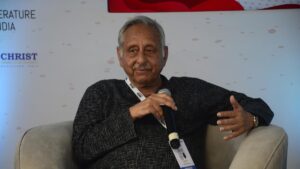
This episode did more than just stir the pot of political debates; it underscored the crucial role of public discourse in shaping public perception and re-evaluating historical events. Aiyar’s remarks led to broad discussions on how the Indo-China war has been historically narrated in India, bringing to the fore the need for careful communication by public figures on sensitive subjects.
Apology Issued and BJP’s Call for Congress’ Clarity on China
Following his controversial statement, Aiyar issued an apology, which may have aimed to quell the flames but also ignited a demand by the BJP for a clearer stance from the Congress on China. The BJP leveraged this incident to challenge the Congress, spotlighting the overarching implications such statements have on India’s geopolitical stance and international relations, particularly with China.
The Role of Public Discourse in Addressing Historical Events
The incident brings to light the broader implications of how historical narratives are treated in public discourse. It not only shapes public opinion but also plays a pivotal role in diplomatic relationships and policy-making. This situation serves as a reminder of the delicate balance leaders must maintain while addressing the past, ensuring their words do not inadvertently distort historical nuances or stir unnecessary controversy.
Congress Response to the Controversy
In the heated aftermath of Mani Shankar Aiyar’s comments, the Congress party response was swiftly spearheaded by Jairam Ramesh. Addressing the media, Ramesh criticized the handling of recent border disputes by the current administration, while simultaneously navigating the sensitivities surrounding the Congress party’s historical legacy.
Jairam Ramesh, known for his responsible rhetoric, took a defensive stance in light of the public and political backlash. His emphasis was on distancing the party from Aiyar’s controversial remarks and underlining the need for respectful discourse about India’s historical events.
Jairam Ramesh’s Defensive Stand and Accusations Against Current Administration
During his address, Ramesh reiterated that the remarks made by Aiyar were his personal views and not reflective of the Congress party’s positions. He pointed out that attributing such viewpoints to the entire party was misleading and detrimental to political decorum. Furthermore, Ramesh accused Prime Minister Narendra Modi of not adequately addressing the recent Chinese incursions, turning the incident into an opportunity to reflect on national security concerns.
The Fine Line Between Revisionism and Respect for History
The incident brought to the forefront the delicate balance between acknowledging the historical legacy of events like the 1962 Sino-Indian War and the propensity for historical revisionism in political narratives. The necessity for maintaining integrity and accuracy in discussing historical events has never been more apparent, ensuring that the past serves as a meaningful lesson rather than a tool for contemporary political leverage.
Comparative Analysis: India’s Electoral Process Praised by Pakistani Leader
In a remarkable nod across geopolitical boundaries, Shibli Faraz, a noted Pakistani leader, has openly commended India’s electoral process. Faraz’s praise highlights the robust framework and transparency that India maintains during its electoral exercises. This approval comes at a time when Pakistan’s elections have recently been marred by controversies, drawing a stark contrast between the electoral integrity of the two neighboring countries.
Shibli Faraz Highlights the Strengths of India’s Election System
During his address, Shibli Faraz underscored several aspects of India’s electoral process that set a benchmark for democratic practices globally. He noted the systematic approach and the use of technology which ensure the inclusivity and accuracy of the electoral rolls, fostering a trust in the process among the populace. Such commendation, especially coming from a Pakistani political figure, underscores the efficiency of India’s Election Commission and its commitment to upholding democratic values.
Reflecting on Pakistan’s Recent Election Controversies and International Response
The recent Pakistani elections were quite turbulent, with allegations of electoral fraud and significant scrutiny from the international community. This negative spotlight contrasts sharply with the international response to India’s latest electoral process, which was largely perceived as fair and transparent. The differences in these reactions highlight the critical need for countries to ensure that their electoral systems uphold integrity and transparency to maintain domestic and international trust in their democratic processes.
As Faraz’s comments reverberate through political circles, they serve as a reflective mirror for nations worldwide to reassess and innovate their electoral frameworks. The international response, crucial for bolstering or questioning the legitimacy of any electoral process, remains significantly positive towards India. In contrast, Pakistan faces the challenge of restructuring its electoral mechanisms to regain both national and international confidence.
Table: Comparative Analysis of Electoral Processes
| Feature | India’s Electoral Process | Pakistan’s Electoral Process |
|---|---|---|
| Transparency | High – Public trust and clear processes | Medium – Marred by recent controversies |
| International Response | Positive – Viewed as fair and inclusive | Negative – Allegations of fraud lead to scrutiny |
| Technology Use | Advanced – EVMs, VVPATs used nationwide | Emerging – Recent adoption of EVMs |
| Systematic Management | Efficient – Minimal discrepancies | Needs improvement – Management inconsistencies observed |
India’s electoral process and its reception both domestically and internationally set a precedent, as noted by Shibli Faraz. Meanwhile, the pathway forward for Pakistani elections appears focused on overhauling its current systems to match international standards as evidenced by the recent scrutiny. The dialogue initiated by Faraz’s commendations opens up further avenues for bilateral discussions on democratic practices and electoral transparency between the two nations.
Future Implications of NEET-PG Postponement on Indian Politics
The delay of the NEET-PG exam is a decision with significant repercussions that extend well beyond the immediate concerns of healthcare professionals. The NEET-PG future implications have become a pivotal issue within the Indian political landscape, likely shaping the discourse around healthcare policy for years to come. As political parties and stakeholders grapple with the broader effects of this decision, an undercurrent of tension pervades the atmosphere, potentially leading to shifts in party affiliacies and voter sentiments.
The exam’s postponement may resonate deeply with the electorate, influencing their perception of political leaders and their capacity to govern effectively in the health sector. As the Indian political landscape navigates through these choppy waters, the responses and actions taken by politicians will be scrutinized for their alignment with the public’s demand for a robust and responsive healthcare system. This could result in policy revamps, with political parties pushing for reforms aimed at preventing similar disruptions in the future. Consequently, such policy changes could play a significant role in the long-term development of India’s healthcare infrastructure.
In this dynamic scenario, the need for a transparent and strategic approach to healthcare policy cannot be overstated. With the acute spotlight on NEET-PG future implications, there is an acute pressure on politicians to not only address this specific issue but also to exhibit foresight in predicting and preventing similar occurrences. The manner in which this unfolds has the potential to redefine the socio-political fabric, altering power dynamics within the Indian political landscape as the nation seeks progress in its healthcare offerings and policy development.
FAQ
What is NEET-PG and why is it significant?
The National Eligibility cum Entrance Test for Postgraduates (NEET-PG) is an entrance exam in India for medical graduates seeking admission into postgraduate medical courses, such as MD/MS and PG Diploma programs. It is significant because it serves as the primary gateway for medical students to advance their careers and ensures the quality of medical education and healthcare professionals in the country.
How many applicants typically take the NEET-PG exam each year?
The NEET-PG exam attracts a substantial number of medical graduates annually, indicative of the scale and competitiveness of the examination. While the exact number may vary each year, it often runs into the tens of thousands, underlining its importance for medical students and residency programs.
What has been the reaction to the NEET-PG postponement announcement?
The announcement of the NEET-PG postponement has led to a wide range of reactions among medical aspirants, from disappointment and frustration to concern over the impact on their academic and professional plans. The uncertainty has also heightened mental health concerns among the students, who are seeking clarity and swift resolution.
Why has the postponement of the NEET-PG exam caused a political uproar?
The postponement has caused a political uproar because it directly affects thousands of medical students and has led to disruptions in the academic and residency programs calendar, prompting political parties to question the decision’s timing and the governmental priorities. It has also become a point of political debate and scrutiny, as various parties express their support or opposition, potentially influencing public opinion and voter reaction.
How have political parties responded to the NEET-PG delay?
Political parties have voiced support or opposition to the NEET-PG postponement, depending on their political strategies and ideological standpoints. The incident has become a politically charged issue, with parties leveraging it to express solidarity with affected students, criticize government policies, and influence electorate responses.
What kind of disruptions are medical aspirants facing due to the postponement of NEET-PG?
Medical aspirants are facing disruptions in their academic plans and delays in starting their residency programs, which are critical for their career advancement. The postponement has introduced pervasive uncertainty, causing distress and aggravating mental health issues due to the stress of the profession coupled with the anxiety of the delay.
Are students protesting the NEET-PG postponement?
Yes, students have initiated protests and are mobilizing collectively against the postponement of NEET-PG. The protests demonstrate the students’ demand for transparency and resolution, underscoring their active engagement and determination to confront decisions that affect their professional futures negatively.
What political ramifications could arise from the UP government’s review of the OBC quota?
The Uttar Pradesh government’s review of the Other Backward Classes (OBC) quota reservation for Muslims, initially legislated by the previous SP government, could stir significant political controversy. The move has the potential to reshape reservation policies and impact socio-political dynamics within Uttar Pradesh, a state with a complex and diverse electoral landscape.
What was the controversy involving Mani Shankar Aiyar and the 1962 Indo-China war?
Mani Shankar Aiyar, a former Union Minister, made controversial remarks regarding the 1962 Indo-China war, terming it an ‘alleged Chinese invasion’. This led to political backlash and demands from the BJP for an official stance from Congress on relations with China. Aiyar later apologized for the comment, bringing attention to the importance of careful public discourse around historical events.
How did the Congress Party respond to Mani Shankar Aiyar’s controversial comments?
In response to Mani Shankar Aiyar’s controversial comments, Congress general secretary Jairam Ramesh defended the party, distancing it from Aiyar’s statement. He criticized the current administration for its handling of territorial disputes with China, highlighting the broader issue of balancing historical revisionism with respect for historical legacy and the significance of responsible rhetoric.
What did Pakistani leader Shibli Faraz say about India’s electoral process?
Pakistani opposition leader Shibli Faraz commended India’s electoral process for its efficacy and transparency, contrasting it with the criticized and controversy-marred elections in Pakistan. The acknowledgment from a Pakistani leader strikes a sharp contrast with the political unrest surrounding elections in Pakistan and underscores the importance of reliable electoral systems in democratic governance.
What are the future implications of the NEET-PG postponement on Indian politics?
The future implications of the NEET-PG postponement on Indian politics could be considerable, potentially influencing healthcare policy, administrative decision-making, and the political discourse around medical education. The controversy might resonate among voters, affect electoral outcomes, and shape future policy directions regarding the healthcare system.


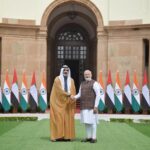


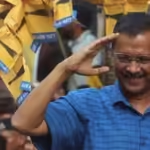


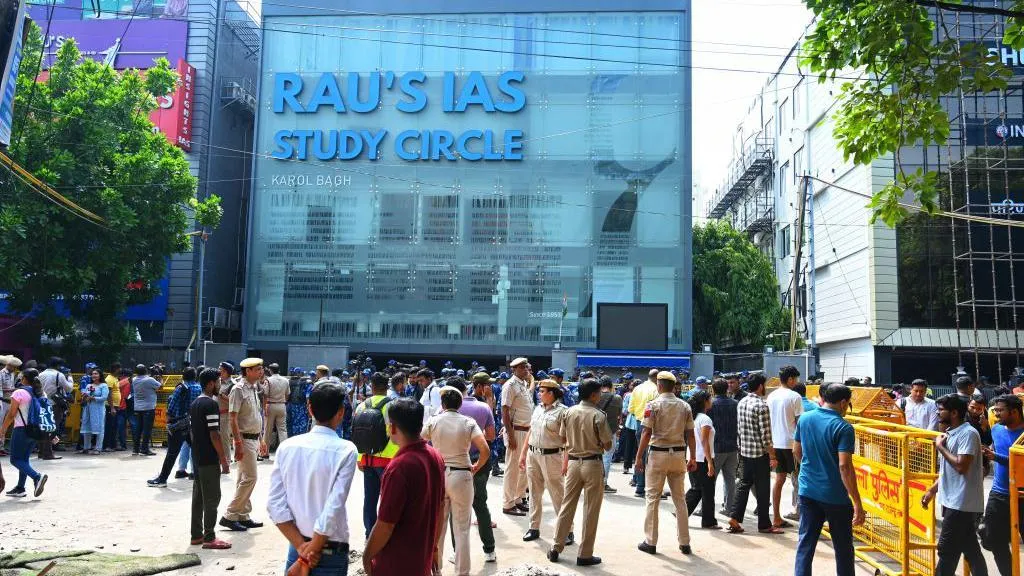


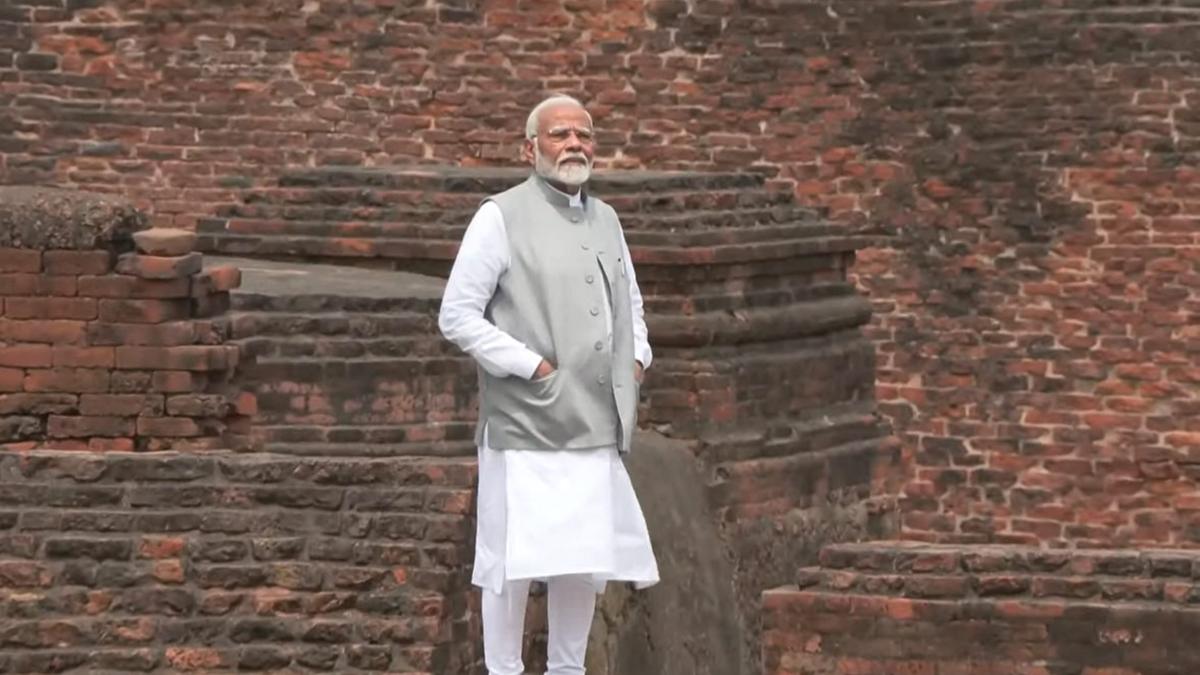
I don’t think the title of your article matches the content lol. Just kidding, mainly because I had some doubts after reading the article.